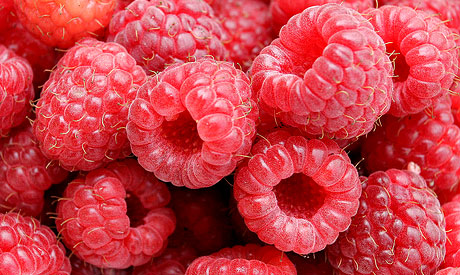
Salicylates are chemicals found naturally in certain plants–including many fruits and vegetables–and are an ingredient in aspirin and other pain-relieving medications, as well as additives in many health and beauty products.
Most people can handle an average amount of salicylates in food, products and medications without experiencing any adverse effects. However, some people are either sensitive or allergic to salicylates. There is a small population that even a small dose of salicylates can cause them to have an adverse reaction.
The website salicylatesensitivity.com distinguishes between an intolerance or sensitivity to salicylates and an allergy. People who are only intolerant can handle a larger amount of salicylates than people who are allergic. Since salicylates build up over time, they have a cumulative effect in the body, so after excessive exposure a person with salicylate intolerance may experience a reaction. Severe allergy cases can lead to anaphylaxis, which is life-threatening, and involves a severe decrease in blood pressure, loss of conscious and even organ system failure.
Read more about food allergies
The symptoms of a salicylate allergy include the following:
- Asthma-like symptoms like wheezing and trouble breathing
- Headaches
- Nasal congestion
- Changes in skin color
- Itching, skin rash or hives
- Swelling of the hands, feet and face
- Stomach pain
If you suspect that you are either intolerant or allergic to salicylates, there are certain foods, medications and personal care products you should avoid. Foods that contain salicylates include fruits such as apples, avocados, blueberries, dates, kiwi fruit, peaches, raspberries, figs, grapes, plums, strawberries, cherries, grapefruit, and prunes. Vegetables containing salicylates include alfalfa, cauliflower, cucumbers, mushrooms, radishes, broad beans, eggplant, spinach, zucchini, broccoli, and hot peppers.
Salicylates are also used as a food additive, and some cheeses, herbs, spices and condiments may contain salicylates. The following food products may also contain salicylates:
- Dry spices and powders, tomato pastes and sauces, vinegar, soy sauce, jams, and jellies
- Beverages such as coffee, wine, beer, orange juice, apple cider, regular and herbal tea, rum, and sherry
- Nuts such as pine nuts, peanuts, pistachios, and almonds
- Some candies, such as peppermints, licorice, and mint-flavored gum and breath mints
- Ice cream, gelatin
The following personal care products may contain salicylates:
- Fragrances and perfumes
- Shampoos and conditioners
- Herbal remedies
- Cosmetics such as lipsticks, lotions, and skin cleansers
- Mouthwash and mint-flavored toothpaste
- Shaving cream
- Sunscreens or tanning lotions
- Muscle pain creams
- Alka Seltzer
Read more about cosmetics
In addition to certain food and personal care, there are medications and ingredients that may contain salicylates:
- Aspirin
- Acetylsalicylic acid
- Artificial food coloring and flavoring
- Benzoates
- Beta-hydroxy acid
- Magnesium salicylate
- Menthol
- Mint
- Salicylic acid
- Peppermint
- Phenylethyl salicylate
- Sodium salicylate
- Spearmint
Photo Credit: dullhunk










